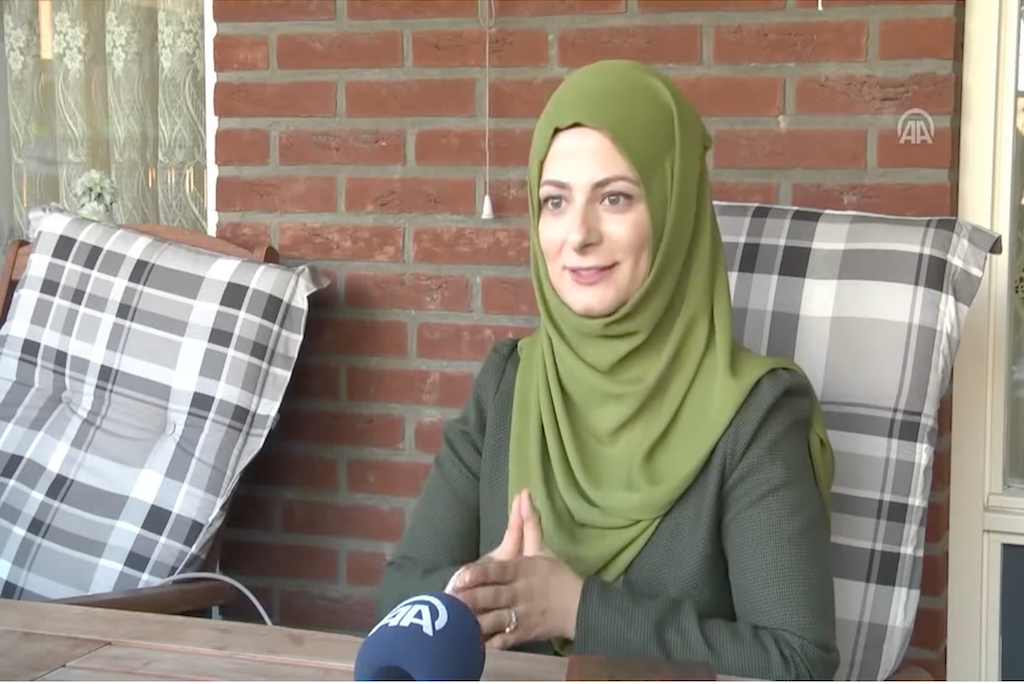A Turkish lawyer working for the Dutch government was fired from her job due to her active role in a massive post-coup witch hunt targeting alleged followers of the Gülen movement in the Netherlands.
Reports say Turkish lawyer Şükran İnce was chairperson of the Aid to Turkish Families Commission, which was established in the aftermath of a controversial coup attempt in Turkey on July 15, 2016. İnce reportedly played an active role in discouraging Turkish families from sending their children to schools operated by Turkish businessmen allegedly affiliated with the Gülen movement.

The pro-government Turkish-Islamist daily Milat pointed to an article published in Dutch newspaper De Volkskrant on July 3, 2016, with the headline, “This is the lawyer behind the clearing out of Gülen schools,” which described İnce as a person in whom Erdoğan had trust and who was engaging in a smear campaign against Gülen schools.
The same paper on Sept. 15, 2016 accused İnce, who spoke numerous times to Turkey’s state-run TRT and Anadolu news agency against the Gülen movement to smear them, of provoking Turks against Gülen sympathisers. İnce has since lost her job, Milat reported.
Dutch-Turkish relations took a turn for the worse in March of 2017 when Turkish efforts to hold political rallies on Dutch territory caused a stir, leading Dutch authorities to place travel restrictions on Turkish officials looking to campaign for a constitutional referendum in Turkey.
During the referendum campaign in 2017 to amend the Turkish constitution and change the system of governance from a parliamentary to a presidential system, the Netherlands refused to allow Turkish Foreign Minister Mevlüt Çavuşoğlu’s plane to land in the country. Family and Social Policy Minister Fatma Betül Sayan Kaya in response went from Germany to Rotterdam by car to hold a rally and was declared persona non grata and escorted by police out of the Netherlands.
There are around 400,000 Turkish citizens living in the Netherlands.
The Stockholm Center for Freedom (SCF) has released a report on February 27, 2017 titled “Erdoğan’s Long Arm in Europe: The Case of the Netherlands” and exposed Turkish government profiling, harassment activities in Netherlands which led to physical assaults and arson attempts against Turkish President’s critics.
The Turkish government sees Fethullah Gülen as President Erdoğan’s main rival and blames the cleric for the failed coup. The Gülen (aka Hizmet) movement is inspired by US-based Turkish Muslim intellectual Fethullah Gülen, who has been advocating science education, interfaith and intercultural dialogue and community contribution.
Gülen has been a vocal critic of the Turkish government and President Erdoğan over massive corruption in the government as well as Turkey’s aiding and abetting of radical groups in Syria. Erdoğan launched an unprecedented persecution against Gülen and his followers in December 2013 right after a major corruption probe that incriminated Erdoğan’s family members.
The ruling Islamist leaders have labelled the movement “FETÖ,” a terrorist organization, although Gülen and his followers have never advocated violence but rather remained staunchly opposed to any violence, radicalism or terror in the name of religion.
Turkey survived a controversial military coup attempt on July 15, 2016 that killed 249 people. Immediately after the putsch, the Justice and Development Party (AKP) government along with President Erdoğan also pinned the blame on the Gülen movement.
Gülen, who inspired the movement, strongly denied having any role in the failed coup and called for an international investigation into it, but President Erdoğan — calling the coup attempt “a gift from God” — and the government initiated a widespread purge aimed at cleansing sympathizers of the movement from within state institutions, dehumanizing its popular figures and putting them in custody.
Turkey has suspended or dismissed more than 150,000 judges, teachers, police and civil servants since July 15. On December 13, 2017 the Justice Ministry announced that 169,013 people have been the subject of legal proceedings on coup charges since the failed coup.
Turkish Interior Minister Süleyman Soylu announced on April 18, 2018 that the Turkish government had jailed 77,081 people between July 15, 2016 and April 11, 2018 over alleged links to the Gülen movement.
















[…] Source link […]
[…] Source link […]